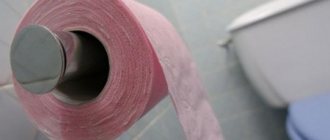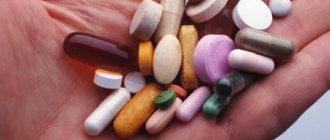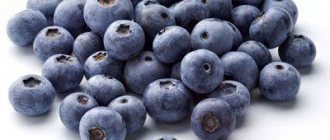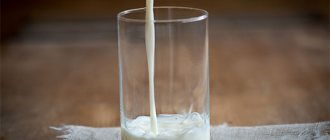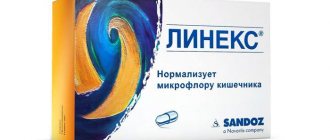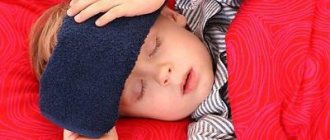Diarrhea, a scourge that can happen to each of us, can have different manifestations. In this article we will talk about the causes and treatment of diarrhea with water in an adult, an ailment that is medically called secretory diarrhea.
Normally, the feces that form in the body have a fairly dense consistency, although about seven liters of water enter the lumen of the digestive tract per day. The thing is that excess liquid along with mineral salts is absorbed by the walls of the large intestine. When a malfunction occurs in the body for some reason, the intestines stop or, due to increased peristalsis, simply do not have time to absorb water. As a result, it is washed out along with the feces. All of the above is the mechanism of diarrhea in the form of water in an adult.
Find out what to do if a child has diarrhea and a temperature of 38 on our website.
Causes
Knowing the reason for water diarrhea is quite important. First of all, this will help to take correct measures in an emergency situation. As you know, diarrhea can occur at any time, putting a person in an awkward position.
Important! If diarrhea does not go away within three days, all medications are ineffective, you should immediately consult a doctor.
The digestive system is directly related to the work of internal organs and the external environment, which is why it is most susceptible to disease. Any irritation or disruption of body functions leads to increased motor activity, then the release of mucus, and then to diarrhea.
- Dyspeptic. The most common cause of diarrhea is water. It occurs due to a disrupted regulatory system of the gastric glands, the lack of the body’s ability to absorb and digest food.
- Infectious. This factor is characterized by the presence of intestinal viruses, food toxins and dysentery.
- Nutritional. The body's reaction to the allergen content in the food consumed.
- Toxic. Poisoning with poisons and toxins (arsenic, mercury).
- Medication. Negative effects of medications. For example, antibiotics, along with harmful bacteria, also kill vital bacteria for the human body.
- Neurogenic. “Bear disease” is the second name for the disease and also the cause of watery diarrhea. It is caused by fears, stress, anxiety and emotional distress.
There are other causes of diarrhea in an adult. Malaise may be accompanied by various symptoms. If you also have a fever during diarrhea with water, it is most likely intoxication of the whole body. Diarrhea can also be a manifestation of other diseases (pancreatitis, hepatitis, appendicitis). Diarrhea is a symptom of these diseases if the patient complains of abdominal pain.
Let's sum it up
The so-called indigestion is a phenomenon that everyone experiences many times in life, since, unfortunately, it is natural for the imperfect human body. However, sometimes the onset of diarrhea should cause you concern, as it manifests itself due to the development of various diseases inside your body. This applies to a greater extent to diarrhea with water, since it characterizes a serious violation of the absorption function of the intestine.
Do not self-medicate, contact your doctor immediately, and soon you will be able to return to a normal, healthy life again. Read our article on how to properly give an enema to a child.
Diarrhea can be caused by very dangerous reasons
Symptoms
To determine a specific problem, it is necessary to take into account the signs and characteristics of the disease. In the case of watery diarrhea, the distinctive features are expressed in the nature of the flow and color of liquid feces.
Diarrhea can be accompanied by a temperature from 37 to 39°. What is considered normal in principle, its absence is worse; this indicates immunodeficiency. Nausea is the most common symptom of the disease, which subsequently causes vomiting. A feeling of heaviness and pain in the abdomen are also characteristic. Against the background of diarrhea, one almost always notices the belching of rotten eggs, which is present due to the release of gases from the gastrointestinal tract.
A specialist can easily determine the cause by the color of the stool.
- Green stool indicates the presence of bacteria and viruses in the intestines.
- Diarrhea with yellow water occurs due to increased peristalsis (the most favorable sign and cause for the patient).
- Black feces can be caused by eating beets, blueberries and activated carbon - in the best case. If none of the above was taken in food, then this is a serious “bell” of the body, which is a symptom of bleeding from the stomach.
- White diarrhea means there is a tumor or stone in the bile duct.
- With watery transparent diarrhea, one can assume cholera, which, when entering the body, provokes all the mechanisms of diarrhea.
Activated charcoal for diarrhea
What to give for diarrhea to an adult? Enterosorbents are a group of drugs that have an adsorbing and enveloping effect. Treatment should begin with activated carbon. Sometimes that's enough
. These tablets for diarrhea in adults (and children) are not absorbed in the intestines.
Activated carbon is taken at the rate of one tablet per 10 kg of patient weight. So, if the patient weighs 60 kg, then, accordingly, he should take 6 tablets and drink plenty of water.
Activated carbon absorbs all harmful toxins, bacteria and viruses, and also binds water and covers the intestinal wall with a protective layer. After this it is eliminated naturally
.
It should be noted that after taking tablets of this drug, the stool will be black
. There is no need to be afraid of this. If diarrhea occurs due to poor-quality products, then activated carbon in most cases is sufficient for treatment.
Consequences
What to do if you suddenly catch water diarrhea in an adult? Treatment must be urgent. Especially if the patient has vomiting and diarrhea with water. Such manifestations can lead to dehydration.
The human skeleton is made up of 15–20% water, while the heart and brain are 76%. From this we can conclude: how important water is to the human body. All organs can be affected by deficiency.
In addition, minerals are also lost with diarrhea. With loose stools more than 3 times a day, the water-salt balance is disturbed. If treatment is not started in a timely manner, recovery will require significantly more time, especially for older people.
Watery stools during pregnancy
Watery consistency of stool and nausea when carrying a baby can be caused by changes in the body, including changes in the functioning of the gastrointestinal tract. It is not uncommon for the stomach to begin to hurt painfully after taking certain medications.
Loose stools are often caused by:
- hormonal changes;
- various parasites;
- the body's reaction to certain foods.
Note that at 37 weeks, watery diarrhea may signal impending labor.
What to do?
If we assume that diarrhea is caused by a common stomach upset, then safe remedies from the folk treasury can help.
So, if the stool is very loose, you can:
- Eat 1-2 tablespoons of boiled sticky rice.
- Use blueberries in any acceptable form - fresh, dry, frozen, grated with sugar.
- Drink jelly with potato starch or dried fruit compote.
- Chew dry tea.
- Eat boiled or baked pears – 1-2 pcs./day.
How to make a proper diet
Severe diarrhea with water, what to do first? If you have diarrhea with water, you must follow a diet. First of all, exclude baked goods and pasta, sweets, carbonated drinks, fatty meats and fish. You should also avoid canned and pickled foods. Food should be steamed, boiled or baked.
Important! Do not break your diet under any circumstances! Its goal is not only prevention, but also treatment of the disease.
Sample menu for water diarrhea in adults:
- breakfast (steamed omelette, tea with crackers);
- snack (biscuits, apple juice diluted with water 1:1);
- lunch (soup with vegetables in light meat broth, steamed chicken meatballs, jelly);
- afternoon snack (baked apple and biscuits);
- dinner (buckwheat porridge, boiled chicken breast, rosehip infusion);
- second dinner (chamomile infusion and crackers).
Nutrition
Diet plays an important role in the treatment of diarrhea in the form of water. In cases provoked by exacerbations of gastrointestinal diseases or the intake of certain foods, diet alone may be enough to stabilize the situation.
The following foods and drinks are prohibited:
- fatty food;
- fried foods;
- sweets and desserts;
- spicy, salty, smoked foods;
- marinades and pickles;
- canned food, both home-cooked and store-bought;
- all dairy foods, including porridges cooked in milk;
- raw plant foods;
- nuts and seeds;
- mushrooms;
- legumes;
- sauces, including mayonnaise;
- soda;
- coffee.
Nutrition should be light, not burden or irritate the liver, stomach, pancreas, intestines, help slow down motility, and relieve inflammation. These are any cereals, without adding oil; boiled chicken eggs; boiled or steamed meat, fish, poultry, without streaks of lard, and broths made from them. It is allowed to eat stale bread, crackers, biscuits, and dry goods.
To drink, not too strong black and green unsweetened teas, decoctions of chamomile, mint, rose hips, St. John's wort and other herbal drinks indicated for gastrointestinal pathologies are recommended. To prevent dehydration, you need to drink mineral water without gas. You are allowed to drink jelly - just not very sweet or sour.
Meals are fractional, frequent - up to 6-7 times a day, but in small portions. At the very beginning of debilitating diarrhea, it is better to partially or completely replace meals with recommended drinks.
After the diarrhea runs out, there is no need to abruptly return to your normal diet and, especially, pounce on unhealthy and heavy foods. The body in general and the intestines in particular need time to rest and recover. Therefore, during the first days you need to stick to a diet, gradually introducing familiar foods to the menu.
Persons with chronic gastrointestinal pathologies should adhere to certain dietary restrictions in the future so that cases of diarrhea do not recur. The nuances of your diet should be discussed with your doctor.
It is strictly forbidden to drink any alcoholic beverages during diarrhea, even with a minimum content of ethyl alcohol. They irritate the mucous walls, which are already inflamed, increase dehydration of the body, cause nausea and bloating.
Conservative treatment
Having established the cause, studied all the signs, and switched to a diet, the question of direct treatment remains. Liquid diarrhea like water, what should I do?
Answer: If you have watery stools, it is important to stay hydrated. Therefore, the first step is to restore the water-salt balance, for this reason Regidron is used. The powder must first be diluted with water. It is important to start using the drug in the first 6-10 hours, the dosage varies depending on weight loss. If a person has lost 500 g, he needs to drink 1 liter of Regidron. During this period, no more fluid is required. After passing this stage, you can introduce other liquids. In addition, you can use still mineral water. For these purposes, a good option is Essentuki “4”.
Some people have a tendency to be treated with antibacterial drugs. They are guided by the fact that they can cure all ailments. Alas, not in this case. For water diarrhea, an antibiotic is prescribed if the causative agent is cholera or salmonellosis.
Important! Treatment of diarrhea with water should be comprehensive. It is necessary to correctly combine drugs from different groups.
Often, sulfonamide drugs, antibacterials, nitrofurans, antifungals, enterosorbents and antiviral agents are used in conservative treatment.
Treatment with folk remedies
Traditional medicine knows many recipes for diarrhea, which have been tested over the years. They are quite effective and can be used together with medications. Treatment at home with folk remedies will make it easier to endure this unpleasant period and speed up the recovery process.
Nausea and diarrhea with water
You will need a handful of onion peels. Pour the raw materials into 1 liter of water and place on the stove. Bring the infusion to a boil and let simmer over medium heat for 10 minutes. Strain the finished broth and take 0.5 liters throughout the day in small sips.
Blueberry
An infusion is prepared from blueberries. For which you need 4 tbsp. l. Pour 1 liter of boiling water over the crushed leaves of the plant and let it brew for 30 minutes. Take ½ glass of infusion before meals. The course of treatment is 2 days.
Treat with pomegranate peels
After separating the peel from the grains, it is crushed and dried. Then 1 dec. l. pomegranate peels pour 1 tbsp. boiling water, put on fire and bring to a boil. Pomegranate broth must be boiled for 5 minutes. Take 100 ml a quarter of an hour before meals.
Vodka with salt
In 100 ml of vodka you need to dilute ½ tsp. table salt and drink immediately. If you feel the effect after an hour, you can eat a little. If not, then the procedure can be repeated. The main thing is to do it no more than once every 4 hours. Often one dose is enough.
Vodka with pepper
This remedy is most often used for colds. But not everyone knows that it can also cure diarrhea. Add ½ tsp to 200 ml of vodka. ground red pepper and 1 tsp. salt, mix everything thoroughly, and then drink in one gulp. The effect can be felt an hour after administration. During this period, it is advisable to adhere to bed rest.
Carrot
You will need 4 medium carrots. They must be thoroughly washed and boiled with their skins on. When they are cooked, prepare thick carrot puree in water. Take 4 times a day, 3 tbsp. l.
Treating diarrhea with walnuts
It is necessary to prepare a tincture, not from the nut kernel itself, but from the partitions. To do this, you need to take 1/3 cup of partitions and pour in 500 ml of vodka. The tincture is infused in the sun for 2 weeks. Take 50 ml twice a day.
Ginger tea
You need 1 tsp. ground ginger, pour 200 ml of boiling water, let it brew for half an hour. Take 1 tbsp infusion. l. at intervals of 30 minutes.
Oak bark tincture
One teaspoon of oak bark is poured with 400 ml of vodka. Shake the bottle and put it in a dark place for 7 days. The medicine is taken twice a day, 20 drops.
Important! Before using this or that recipe, first make sure that you do not have hypersensitivity to the components included.
Prevention
Dangerous microorganisms are especially active during the warm period. Before eating, wash fresh fruits, berries and vegetables thoroughly and then pour boiling water over them.
- Maintain good hand hygiene: wash with soap before eating, after going outside, shopping and using the toilet.
- Even after you decide to count your cash savings, don’t forget to wash your hands.
- Make sure that all products undergo thorough heat treatment and are well fried, stewed and finished cooking. Do not eat expired products.
- Raw food should never be stored together with cooked food. You should not eat in dubious establishments (cafes, snack bars and restaurants).
Drink high-quality water or boil it for more time. This kind of trouble often catches people who love to travel. When traveling abroad, also do not forget about hygiene rules.
source: www.lechim-prosto.ru
Diarrhea is an extremely unpleasant problem that usually strikes at the most inopportune moment. Although water diarrhea in an adult does not require special treatment, no one wants to wait until the problem goes away on its own. There are quite a lot of methods to combat diarrhea, and it will not be superfluous to get acquainted with them.
What can cause water diarrhea in an adult?
Diarrhea or, more simply put, diarrhea is a phenomenon familiar to many. More often than others, this problem is encountered by children who follow basic hygiene rules every now and then. Although adults treat hygiene standards more responsibly, not everyone can protect themselves from diarrhea. Therefore, almost everyone has to suffer from frequent runs to the toilet and extremely unpleasant abdominal pain from time to time.
Diarrhea in the form of water can appear for various reasons:
- Some people suffer from stomach upsets due to stress.
- Even one unwashed and hastily eaten apple (or any other fruit) can cause diarrhea.
- We must not forget about infectious bacilli, which most often multiply in untreated water.
- Very often, diarrhea appears as a negative reaction of the body to taking potent drugs: antibiotics, cyostatics, prokinetics and, paradoxically as it may sound, laxatives.
- Dysbacteriosis can also manifest itself as diarrhea.
Regardless of what caused it, diarrhea causes many problems and harms the body.
What to do if diarrhea is like water?
As is the case with most other diseases, it is strictly not recommended to start fighting diarrhea without understanding the cause of the problem. It turns out that the first thing you need to do when you have water diarrhea is to determine what caused the diarrhea. Usually this is not a difficult task - you will probably remember how, in a hurry, you drank a glass of untreated water or, having decided to remember your childhood, you ate an unwashed apricot straight from the tree.
In most cases, diarrhea goes away on its own within a day or two. Even doctors do not advise doing anything special at this time. All you can do is drink more water (diarrhea greatly dehydrates the body) and follow a gentle diet. If you have diarrhea, you should not eat heavy or fried foods; alcohol, fast food, fresh fruits and vegetables are strictly prohibited. The following products will help treat diarrhea with water in an adult:
- dried bread;
- dairy products;
- porridge;
- dried fruits and berries;
- baked apples;
- lean boiled meat;
- jelly.
You shouldn’t forcefully eat if you have diarrhea like water. The main thing is to drink, and you can recover and recharge your body with energy even after recovery.
Of the medications, only harmless sorbents are allowed, such as activated carbon or calcium gluconate. Some people find help such as:
- Smecta;
- Enterosgel;
- Atoxyl.
It is not advisable to stop taking these medications until complete recovery.
If diarrhea like water in an adult continues for a long time (three or more days), while the patient suffers from fever, sudden weight loss and bloody discharge, it is better to seek qualified help. Most likely, the cause is a serious infection, and therefore appropriate treatment is required - with antibiotics, probiotics, anti-inflammatory, antifungal drugs and enzymes.
Some methods of treating diarrhea with water are also available in folk medicine:
- Oak bark tincture helps with diarrhea.
- Chamomile decoction promotes a speedy recovery.
- Adherents of traditional methods of treatment recommend eating bird cherry fruits for diarrhea.
- A good remedy is peppercorns.
source: WomanAdvice.ru
During normal functioning of the body, a person excretes an average of 150-300 g of feces every 24 hours. The amount of feces depends on the food consumed and the amount of coarse dietary fiber in it. The frequency of bowel movements is individual for each person, but if visiting the toilet exceeds 3 times a day, we can safely say that the person has developed diarrhea. During “normal” operation of the digestive system, the amount of liquid in the stool is no more than 60%, and the person does not experience any discomfort. If the functioning of the gastrointestinal tract is disrupted, then up to 90% of fluid in the stool can be observed. In this case we are talking about watery diarrhea.
Diagnosis of disease characteristics by stool color
Few people know, but under the influence of various factors, our stool can become colored in unimaginable colors. In a normal state of health, we can observe a change in the color of feces, for example, after eating some coloring food (beets, for example). However, provided that there is some kind of disorder in the body, the color of diarrhea can become a symptom that will tell the doctor a huge amount of information about the disease, much more than he will receive from a description of the symptoms accompanying diarrhea.
Liquid stool is a kind of marker of pathology, which, when combined with different colors, can provide highly accurate information about what processes are occurring in the body.
Yellow feces
Provided that you have diarrhea of a watery consistency, yellow in color, the reasons for its occurrence may be as follows.
The first disease that is suspected is rotavirus infection. It is otherwise called “stomach flu”. Infection with the desired infection occurs in the following two ways:
- via fecal-oral transmission;
- by airborne droplets.
All healthy (or suffering from other diseases) persons who are in contact with a person suffering from the disease are at risk.
Yellow water diarrhea occurs in both children and adults
The second reason for the development of yellow watery diarrhea may lie in hormonal disorders, almost all of which can occur in both sexes of the population. Among them:
- disorders of the thyroid gland;
- a disease such as diabetes;
- the onset of menopause;
- pregnancy, etc.
Sometimes yellow diarrhea occurs due to intestinal dysbiosis, which was caused by long-term use of antimicrobial drugs. The desired condition is not dangerous, and goes away quite quickly, since intestinal bacteria, which constantly live inside the organ and take part in the processes of digestion of food, multiply quite quickly, restoring “gaps in the ranks.”
Stages of development of dysbiosis
Another disease that may cause yellowing of feces is pancreatitis, or inflammation of the pancreas, which is responsible for the production of digestive juices. Provided that the desired organ becomes inflamed, an acute condition occurs, accompanied by various manifestations, including diarrhea. You should immediately consult a doctor if you notice the following accompanying symptoms:
- cutting pain in the abdominal cavity;
- nausea;
- increased body temperature;
- undigested food particles in stool, etc.
For many patients, pancreatitis and danger are synonymous. The symptoms accompanying pancreatitis, the causes of development and methods of treatment are discussed in detail in a special article.
In addition, watery diarrhea often turns yellow with peptic ulcers of the gastrointestinal tract, or gastritis, which, unfortunately, are also accompanied by pain. The diseases we are looking for are very dangerous; some organisms, due to natural weakness, cannot tolerate their development. In addition, if both of these diseases are not eliminated in time, there will be a risk of perforation of the ulcer, which will ultimately lead us to catastrophic consequences.
Faeces turn yellow and liquefy when the functioning of the liver becomes insufficient, as a result of which the body lacks bile salts. In this case, the only correct solution for the doctor would be to begin identifying the specific pathology of the organ and eliminate it.
Nervous disorders can also cause yellow diarrhea, especially if they continue for a long time and regularly. The non-stop release of special hormones makes the intestinal walls constantly irritated, resulting in a constant urge to defecate.
The danger of the desired pathological condition is that it is very difficult to get rid of it without the help of a specialist. In addition, even if you immediately consult a doctor with complaints of diarrhea, it will take some time before the doctor understands that the disorder being sought is based on factors of the psychogenic category.
If you have recently had surgery on your intestines or other organs of the gastrointestinal tract, you may also have a bowel movement and see yellow diarrhea. In this situation, there is no danger; while the rehabilitation period lasts, the stool may again take on the desired shade.
Postoperative recovery is often accompanied by yellowish bowel movements
Another case in which your stool may turn yellow is the development of dysentery. The disease occurs when infected with certain varieties of Shigella, and is accompanied by yellow diarrhea, as well as the following other manifestations:
- temperature;
- abdominal pain resembling contractions.
In a situation in which one of the above diseases occurs, treatment will be carried out adequately for the specific disease. You will not be able to eliminate its consequences on your own, since the doctor must determine all the features and nuances of conservative therapy, selecting medications that can be taken or, on the contrary, cannot be used.
The only exception is dysbiosis. If yellow diarrhea occurs in an adult, you don’t have to do anything. However, if the desired disorder has affected the child’s body, it is better to take the following measures:
- transfer the baby to a diet of foods that have a beneficial effect on intestinal function (for example, cereals);
- give him probiotics.
Orange stool with a watery consistency
If a bright orange color of feces occurs, the causes of the following groups can be suspected:
- natural and physiological, not requiring any emphasis;
- serious internal violations.
- Thus, the first group includes one-time excessive consumption of foods that contain carotene (for example, carrots). Of course, this condition cannot be called a pathology; after some time, the color will return to normal.
Carotene-rich foods may cause stool to change color - In the second case, orange diarrhea with the consistency of water appears in conditions requiring urgent medical attention, namely when:
- any liver disease has reached a dangerous stage of development;
- there was a malfunction and damage to the pancreas;
- the patient has developed cystitis and will soon begin to bother him not only with bowel movements, but also with urination;
- gastric ulcer develops.
Watery orange diarrhea also accompanies the development of various gastrointestinal diseases
In any case, we recommend that you act in accordance with the following rules:
- if orange diarrhea is accompanied by pain and other symptoms, you need to see a doctor;
- provided that you remember that you ate carotene-containing foods, wait two to three days, excluding the food you are looking for from the menu, until the orange color goes away and the color of the stool returns to normal (in this case, you do not need to see a doctor);
- if you ate carrots, waited several days, but the feces remained the same color, you should also go to the hospital.
White watery diarrhea
Defecation with white or beige liquid diarrhea clearly indicates the development of pathologies inside the intestines. Let's consider which ones.
First of all, with such a manifestation, so-called proctitis is suspected - inflammation of the mucous walls of the inner surface of the rectum. The desired disease will necessarily be accompanied by some additional symptoms, since our body, being a single system, reacts completely to local pathologies:
- increased temperature;
- anemia;
- deterioration or complete loss of appetite;
- skin rashes;
- losing weight;
- tearing, etc.
It should be said that proctitis does not occur on its own. In addition, it is quite often a consequence of some other pathology, but can also accompany food allergies, poisoning, etc.
The second reason for the formation of white liquid diarrhea is intestinal candidiasis. This is a fungal disease that occurs when the quantitative ratio of microflora of the following type is violated:
- useful;
- opportunistic.
Candidiasis will need to be treated with antifungal drugs. The disease you are looking for has an average degree of danger, so you should still consult a doctor in a timely manner.
Intestinal candidiasis
If there is a malfunction of the gallbladder in your body, diarrhea may also occur. Moreover, if in many other cases diarrhea with water is not accompanied by any odor, then with this pathology you will feel an unbearable stench. Unfortunately, the cause of such a disorder is often oncology of the gallbladder, or the ducts leading from it to the liver, so it is necessary to respond to the occurrence of the disease in a timely manner.
Another disease that often causes white diarrhea in the form of water is cholera. Previously, this disease instilled horror in people because it was not treated; today it is no less dangerous due to severe consequences, but it is curable in a hospital setting.
The color transition of stool shades characteristic of the disease being sought is as follows:
- sharply green;
- yellow-green;
- whitish.
In addition, a patient with cholera suffers from nausea and vomiting. Be careful; at the first sign you should immediately notify your doctor. In case of cholera, it is very important to maintain water balance, as well as salt balance, and to give the patient mineral water without gas, since white diarrhea for this disease looks like you are urinating from the anus.
What does diarrhea look like with cholera?
Diarrhea with water of different shades of red
If your feces suddenly turn red, you should again think about the foods you recently consumed. By overdoing it with beets, you can easily achieve a similar effect and be afraid of it, although in reality there is nothing scary about it.
Red watery diarrhea is a sign of bleeding in the gastrointestinal tract organs closest to the anus
If coloring products have not been consumed in the recent past, the reasons may be much more serious, since red is a sign of the presence of blood in the feces, the source of which is located close to the anus. So, we are talking about:
- peptic ulcer disease (bleeding opens in ulcers - deformed areas of the intestinal or stomach mucosa);
- diverticulitis - an inflammatory process affecting the internal mucous membranes of the intestine, in which perforation of the organ also occurs, hence bleeding;
- Crohn's disease is a granulomatous disease that affects various parts of the intestine, causing ulcers and scarring.
In any of the above options, the consequences can be fatal in a short time, therefore, if you defecate with feces with any shade of red, go to the hospital immediately.
Black liquid stool
Blackening of stool can also be caused by three main groups of reasons:
- consumption of coloring foods;
- taking appropriate medications;
- bleeding of the upper segments of the digestive system.
Reason #1. Provided that you find black feces in the toilet at the end of a bowel movement, you need to do the following: remember whether you have consumed dyeing products. The list of them is extensive, so stool can turn black from:
- prunes;
- grenade;
- low quality red wine;
- strong coffee;
- dark grapes;
- other foods that can color feces.
If this is what caused the blackening, wait 2-3 days and the color will normalize.
Reason #2. The second group of reasons involves staining of stool due to the mass reacting with substances included in drugs for anemia, peptic ulcers, and other diseases, that is:
- iron-containing;
- bismuth-containing, etc.
In this case, a change in the color of the stool is also normal; a few days after stopping the course of taking the drug, the stool returns to normal.
When taking Sorbifer, the stool turns black.
However, you need to pay attention to the following fact: when taking the desired drugs, the feces acquire a more viscous consistency, therefore, the probable reason for the dilution of the feces lies in something else.
Reason #3. Loose stools and black feces can cause bleeding in the esophagus and stomach. The black color comes from nothing more than oxidized blood accumulated in the intestines. The desired symptom is evidence of a very dangerous condition that should be taken seriously and see a doctor.
Black diarrhea is also a sign of bleeding, but of the upper gastrointestinal tract
What is watery diarrhea?
Watery diarrhea (like water) is a condition characterized by the body's excretion of shapeless, pale-colored stool.
During bowel movements, burning and itching of the anus, as well as a feeling of incomplete emptying of the intestines, are often noted.
You can understand that in a particular case we are talking about watery diarrhea by the following characteristics:
- the number of acts of defecation per day exceeds 3 times;
- the total volume of bowel movements increases significantly;
- during the act of defecation and after it, the patient notes discomfort in the abdomen;
- stool is not formed, the color is different from normal (as a rule, the color of stool becomes light brown or yellow).
Why is it dangerous?
The most significant threat that adult stool poses to a person is dehydration.
With diarrhea, water and electrolytes are very quickly removed from the body in feces. In the absence of replacement of lost elements, dehydration develops, which is divided into 3 degrees:
- early dehydration, which is asymptomatic;
- moderate dehydration, which is accompanied by a feeling of thirst, irritability and anxiety, decreased elasticity of the skin;
- severe dehydration, the symptoms of which include more severe conditions such as confusion, shock, prolonged absence of urination, cold extremities, increased heart rate, pale skin and low or undetectable blood pressure.
If emergency measures are not taken to replace fluid in the body, severe dehydration can be fatal.
If any signs of dehydration appear, seek immediate medical attention!
Associated symptoms
This type of diarrhea is most often accompanied by the following symptoms:
- increase in body temperature
High body temperature accompanies diarrhea, which is caused by poisoning, exposure to viruses and infections. Often, along with an increase in temperature, patients note the development of migraine.
- nausea and vomiting
As a rule, diarrhea is accompanied by a feeling of severe nausea, which sometimes ends in vomiting. This state of the body is a kind of protective reaction to substances harmful to it.
- abdominal pain
Abdominal pain with watery diarrhea can be different: from dull aching to acute, spasmodic.
Soreness is felt in the upper abdomen just above or at the waist, as well as in the area below the navel. Sometimes pain appears along with bloating, rumbling, and a feeling of fullness.
With severe diarrhea, the pain becomes sudden and cutting.
Why does water diarrhea occur?
A disorder such as diarrhea, the official name of which is “diarrhea,” means a change in the consistency of stool that accumulates in the intestines, accompanied by various symptoms, for example:
- a sharp increase in body temperature;
- pain in the abdominal area;
- vomiting and similar manifestations.
Changes associated with stool consistency are detected directly during the act of defecation, which usually occurs unexpectedly in this case.
Frequent urge to defecate is one of the signs of diarrhea
In case of disorders, you have to visit the bathroom often, at least 5-6 times a day. This frequency, as well as the low strength of the masses, indicates so-called indigestion caused by reasons of various etiologies.
Before taking measures aimed at eliminating the desired uncomfortable condition, it is necessary to determine the specific cause that led to its occurrence. The best course of action, of course, is to take the following two steps.
First of all, you need to drink plenty of water. The fact is that with watery diarrhea, a catastrophic amount of fluid in the body is lost. Due to the lack of it, after some time the body will begin to draw water from the blood, muscles, etc., which will lead to severe dehydration and many different negative consequences, including:
- dizziness;
- apathy;
- other manifestations of moderate severity and even death in especially advanced cases.
Water should be drunk without impurities; it is best to give preference to still mineral water, which is used to treat diseases of the gastrointestinal tract. It will not only return the necessary fluid to the body, but will also improve the electrolyte balance in the body.
To prevent dehydration, drink still mineral water or Regidron solution
The second important (and mandatory) action is to see a doctor. Let's assume that your diarrhea is more or less normal in color, and you suspect that the reason for its manifestation is poor-quality food. In this case, you can deal with the problem yourself, provided that you are also not bothered by:
- heat;
- sweating;
- pain in the stomach;
- vomiting, etc.
If your condition can be described as weakened, and all the symptoms listed above are present, it is better to seek help from a doctor, even calling a local doctor at home, since you need to receive treatment adequate to the disease, but it is not so easy to determine it yourself .
How does the digestion process occur?
There is such a thing as a food bolus - a certain amount of food that ends up in the digestive tract, the complete digestion and assimilation of which requires the body at least two days from the moment of absorption (48 hours).
Digestive system and timing of food processing by each compartment of the gastrointestinal tract
It is during this period that water contained in food, as well as that which enters the body in other ways, enters the intestines and is absorbed into its walls, further distributed throughout the body. Provided that the surface of the intestinal mucosa is subjected to mechanical, infectious or other effects, they lose the ability to absorb all incoming water. As a result, it begins to be excreted in the feces, which entails:
- liquefying feces to the consistency of “water”;
- frequent urge to defecate.
Schematic representation of the differences between normal stool and diarrhea
Normally, human feces consist of 75% water. This figure already seems very large, however, remember, our body itself is 80% water.
The rest of the mass of dark brown biological secretions consists of:
- digestive juices of the body;
- fiber fibers;
- mucus;
- bacteria;
- intestinal wall cells;
- leftover food we ate.
Most often, the development of watery diarrhea accompanies the ingestion of any food product that has been:
- poorly washed;
- prepared in violation of the temperature treatment regime;
- originally damaged.
When harmful microorganisms enter our body, in a completely natural way the digestive tract begins to react to this, causing the occurrence of:
- severe pain in the abdominal cavity;
- vomiting;
- diarrhea, etc.
However, in addition to the cause being sought, many different factors lead to the formation of watery diarrhea.
Possible causes of diarrhea
First of all, it is necessary to identify several main groups containing the causes of the formation of watery diarrhea and its achievement of a watery consistency.
Table 1. Groups of factors causing watery diarrhea
| Gastrointestinal diseases | Diseases of other body systems | Poisoning, allergies |
| 1. Liquid diarrhea is often a consequence of the development of colitis. 2. A colon tumor can also impair the absorption of water by the intestinal walls. 3. An infection of various etiologies that gets inside the gastrointestinal tract becomes the cause of the development of the disease that interests us. 4. Infection of the gastrointestinal tract by helminths of various families. 5. Damage to the digestive tract due to congenital disorders in the composition of digestive juices. 6. Hemorrhoids provoke the development of diarrhea. 7. Pancreatogenic diarrhea accompanies various diseases of the pancreas. | 1. Disturbances in the functioning of the nervous system, stress, frequent disorders, can cause watery diarrhea. 2. Watery diarrhea is a frequent “guest” in diseases of the endocrine system associated with disorders of the adrenal glands or thyroid gland. 3. With various liver diseases, hepatogenic diarrhea also occurs. 4. Systemic diseases, such as scleroderma, very often cause the development of diarrhea. | Ingestion:
|
Most often, from the above list, the following diseases and infectious factors that affect the body cause the development of watery diarrhea:
- allergic reactions that manifest themselves when eating foods that the human body does not tolerate well for any reason;
- oncological diseases, such as tumor growth in the large intestine;
- inflammation of the pancreas, steatosis of the desired organ, and other related diseases;
- ulcerative inflammation of the internal mucous membrane of the intestine also leads to impaired absorption of water;
- an unhealthy diet, in which fatty, fried foods predominate on the menu, will also sooner or later lead to watery diarrhea and more serious consequences;
- intolerance to dairy products due to the inability to digest lactose.
As we have already said, under the influence of any factors, damage to the mucous surface of the inner walls of the intestine occurs. As a result, it becomes not so easy for them to absorb water, just like the beneficial components of food, such as vitamins and minerals, as a result, all the required components of the diet are naturally ejected from the body, causing you harm.
Layers of the intestine
Even if your condition is not critical, you need to make up for the lack of water by drinking a couple of glasses of still mineral water, but at the same time it is better to abstain from food so as not to additionally burden the digestive tract, because the digestion of food will entail:
- redirecting the body’s energy from recovery to processing and assimilation of food;
- additional damage to the intestinal walls;
- repeated bouts of diarrhea.
Causes and treatment
Causes
In older patients, water diarrhea is often caused by the following reasons:
- acute intestinal infections;
- long-term fasting and mono-diets;
- indigestion after eating a large fatty meal;
- food poisoning;
- allergic reactions to food;
- allergic reactions to certain types of medications;
- psychoemotional disorders, stress;
- intestinal damage by parasites;
- pathologies caused by bacteria, viruses, protozoan microorganisms;
- inflammation of the digestive system;
- enzyme deficiency;
- Crohn's disease;
- sudden change in climatic and temperature conditions;
- toxic poisoning (for example, lead, mercury, arsenic, etc.).
What to do?
First aid
Anyone can provide first aid for diarrhea on their own.
To do this, it is necessary to take any drug that improves the condition of the intestines as early as possible. For these purposes, you can use activated carbon, Smecta, Enterol.
Don't forget about drinking regularly. Water should be consumed often, in small portions. You can use natural juices and teas from medicinal herbs that will help restore lost vitamins.
Next, you need to limit food intake for at least 12 hours. After this time, you need to exclude spicy, fatty and fried foods, as well as pickles and sweets from your diet for several days.
Diet
If you have diarrhea with water, be sure to include the following foods in your diet:
- oven-dried white bread;
- rice porridge;
- blueberry jelly;
- whey;
- strong black tea.
Authorized Products
- lean meat and fish, steamed or boiled in water;
- all types of cereals, except pearl barley;
- vermicelli, pasta;
- milk diluted with water (1 part milk to 3 parts water);
- kefir, sour cream, cottage cheese (low-fat);
- chicken eggs (except hard-boiled);
- jelly, compotes, decoctions and herbal teas;
- sweet fruits and berries;
- parsley dill;
- potatoes, peas, beans, tomatoes, eggplants, carrots.
When treating watery diarrhea, you should not eat raw vegetables and fruits! Cooking should be done by soaking, boiling or steaming.
Prohibited Products
- meat and fish of fatty varieties, as well as offal;
- smoked meats;
- canned food;
- whole cow's milk, goat's milk, cream;
- turnips, beets, radishes, fresh cucumbers, mushrooms and all types of cabbage;
- spices and seasonings;
- fruits and vegetables of sour varieties;
- citrus and exotic dishes;
- baked goods, brown bread;
- carbonated drinks.
Diet for diarrhea
It is important to remember that during and after diarrhea, all organs of the gastrointestinal tract, including the intestines, need support and restoration. A proper diet plays a special role in this. It means using:
- a large amount of clean boiled or mineral, but not carbonated water;
- jelly;
- porridge with water;
- crackers;
- steam cutlets;
- lean boiled meat or fish.
Oatmeal without oil
It is strictly forbidden to eat fatty, spicy foods, sweets, vegetables and fruits, drink carbonated drinks, tea or coffee. It is also important to stop smoking and drinking alcohol.
When should you see a doctor?
Because water diarrhea in an adult can lead to severe dehydration, you should closely monitor the patient's condition and seek immediate medical attention if the following symptoms occur:
- there is mucus, pus or blood in the stool;
- diarrhea in an adult does not stop longer than 3 days;
- feces have acquired a black color and the consistency of tar;
- the stool is similar in color and consistency to rice water;
- the patient's temperature rose sharply and fever appeared;
- abdominal pain increases;
- The patient experiences drowsiness and unusual behavior.
You should also seek medical help if the patient is suffering from uncontrollable vomiting.
Mandatory consultation with a doctor is required for patients over 65 years of age, patients with diabetes mellitus, heart pathologies, liver and/or kidney diseases, as well as HIV-infected people.
Medicines for diarrhea
Medicines for diarrhea are not a panacea at all. A range of interventions should be considered when treating diarrhea. The most important of which, as already mentioned, is the fight against dehydration.
. Let's look at medications for diarrhea in adults that are used most often.
All of them are divided into several pharmacological groups:
- sulfonamide drugs (“Fthalazol”);
- antibiotics (Levomycetin, Tetracycline tablets);
- nitrofurans (drug "Furazolidone");
- antimicrobial drugs (“Enterofuril”, “Sulgin”);
- antifungal (Intetrix) - used for amoebic dysentery;
- enterosorbents (activated carbon);
- antiviral drugs.
Let's look at the most well-known remedies for diarrhea in adults. In what case is it advisable to take this or that drug?
Diagnostics
Self-diagnosis and self-treatment of diarrhea with water are unacceptable!
Determining the cause of the development of watery diarrhea for the subsequent selection of treatment tactics is carried out using the following diagnostic methods:
- bacteriological examination of feces;
- stool analysis for worm eggs;
- stool occult blood test;
- stool analysis for dysbacteriosis;
- caprocytogram;
- clinical blood test;
- irrigoscopy;
- Ultrasound examination of the pelvic and abdominal organs.
In order to exclude pathologies of the large intestine, they resort to sigmoidoscopy and colonoscopy.
Treatment of diarrhea with water in an adult can be carried out with medications, as well as using traditional medicine.
Drug treatment
The choice of drug for the treatment of watery diarrhea depends on the reasons that caused it. As a rule, drugs of the following groups are used:
- antibiotics;
- enterosorbents;
- drugs that inhibit intestinal motility;
- probiotics.
Bifidumbacterin
A probiotic of biological origin that helps regulate the balance of microflora in the intestine.
Thanks to the high concentration of bifidobacteria, which are antagonists of a wide range of pathogenic and opportunistic microorganisms, the drug promotes the rapid restoration of normal intestinal microflora. Used to treat diarrhea caused by acute intestinal infections, dysbacteriosis and food poisoning.
Bifidumbacterin is contraindicated for use in patients with hypersensitivity to the components of the drug. People with lactose intolerance should use with caution.
Average price per package (10 bottles x 5 doses): 88-100 rubles.
Acipol
A drug represented by dry biomass that regulates the balance of intestinal microflora. It is used to treat diarrhea caused by intestinal dysbiosis, has a corrective effect on the microflora, and stimulates the immunological reactivity of the human body.
Contraindicated in case of individual intolerance to the components of the drug.
Average price per package (30 capsules): 320-340 rubles.
Smecta
Antidiarrheal agent of natural origin, which has an adsorbing effect. Stabilizes the mucous barrier, increases the quantity and improves the quality of mucus in the intestines. The drug adsorbs viruses and bacteria that enter the lumen of the gastrointestinal tract.
Smecta is contraindicated for use in case of individual intolerance to the drug, as well as in patients with intestinal obstruction, fructose intolerance, and sucrase-isomaltase deficiency.
Average price per package (10 sachets x 3 g): 150-170 rubles.
Loperamide
Antidiarrheal symptomatic agent that reduces the tone and motility of intestinal smooth muscles. Reduces the rate of peristalsis and increases the time of movement of intestinal contents. Helps increase the tone of the anal sphincter, which helps to retain feces and reduce the frequency of the urge to defecate.
Contraindicated in case of intestinal obstruction, ulcerative colitis in the acute stage, diverticulosis. Not used for the treatment of diarrhea caused by acute pseudomembranous enterocolitis, dysentery and other gastrointestinal infections. It is also prohibited for use by women during breastfeeding and in the first 3 months of pregnancy.
The use of the drug in children must be agreed with the attending physician!
Average price per package (20 capsules): 50-60 rubles.
Enterofuril
Broad-spectrum antimicrobial agent for the treatment of gastrointestinal infections. Having a detrimental effect on a number of gram-positive microorganisms, it does not upset the balance of intestinal microflora. Recommended for the treatment of diarrhea of infectious origin without signs of helminthic infestations.
Contraindicated in patients with high sensitivity to nitrofuran derivatives, as well as premature infants and children under 1 month of age.
The average price per package (16 capsules) is 330-360 rubles.
Phthalazole
A drug from the sulfonamide group, which is advisable to take during diarrhea due to infection (enterocolitis, dysentery, etc.). The use of this drug during allergic diarrhea, or simple indigestion, will be ineffective. In addition, it acts for a very long time, and the treatment will begin to work only 2-3 days after the start of administration, when the number of pathogenic microorganisms is reduced.
Traditional medicine
Pour 3 tablespoons of crushed roots of common sorrel into 500 ml of hot water, leave in a water bath for half an hour, cool for 15 minutes, strain. Bring the resulting volume to the original volume with boiled water. Take 30 ml (2 tbsp) three times a day 30 minutes before meals.
Prepare a medicinal mixture from the following ingredients:
- blueberries - 30 g;
- rhizome of Potentilla erecta - 15 g;
- sandy immortelle flowers - 15 g;
- Salvia officinalis leaves - 50 g;
- caraway fruits - 15 g.
1 tbsp. l. pour 200 ml of boiling water over the resulting mixture, keep in a water bath for 30 minutes, cool, strain, squeeze out the remaining raw materials well. Bring the volume of the resulting broth to the original volume with boiled water. Take 100 ml 4 times a day 15 minutes before meals.
Combine knotweed grass (1 part) with cinquefoil grass (1 part) and plantain leaves (2 parts). 2 tbsp. l. Brew the mixture with 400 ml of boiling water, leave for 45 minutes and strain. Take 100 ml orally every 8 hours (preferably before meals).
Mix rowan berries (4 parts), St. John's wort herb (3 parts) and marshmallow root (2 parts). 1 tbsp. l. collection, brew 500 ml of boiling water, leave for 1 hour, strain. Take 100 ml every 8 hours.
6 tbsp. l. dry chamomile flowers pour 500 ml of boiled water, keep in a water bath in an enamel container for 15 minutes, cool, strain. Thoroughly squeeze out the remaining raw materials and bring the resulting volume to the original volume with boiled water. Dissolve 2 tbsp in the infusion. l. honey and take 1/2-1/3 cup after meals.
Preventing dehydration
If dehydration of the body is not prevented in time and the condition is allowed to develop, this leads to a decrease in the volume of fluid inside the cells, which in turn leads to the development of irreversible processes.
In order to prevent dehydration during watery diarrhea, experts recommend that the patient drink as much fluid as possible. If severe water diarrhea is accompanied by vomiting, the liquid must be taken in small portions.
A very effective way to prevent dehydration is a water-salt solution that can be prepared at home. To do this, you need to dilute 15 g of sugar, 5 g of salt and 2 g of soda in 1 liter of clean boiled water. The resulting solution is taken orally in small sips throughout the day.
If there are no signs of dehydration, this solution should be taken 200 ml after each bowel movement.
In pharmacies you can purchase ready-made powders intended for the treatment and prevention of dehydration, such as Regidron, Gidrovit, Gastrolit, Normohydron, etc.
What diseases can loose stools “tell” about?
The existence of quite serious diseases is evidenced by the occurrence of stomach pain, fever, and diarrhea that lasts for several days.
The painful condition can be provoked by:
- infectious processes in the gastrointestinal tract;
- rotavirus intestinal infections;
- obstruction of the gallbladder;
- open bleeding in the intestines;
- influenza condition;
- chronic illnesses, often enteritis and colitis;
- improper metabolism combined with impaired digestion.
Severe diarrhea can be accompanied by cholera disease, which occurs when hygiene rules are ignored.

